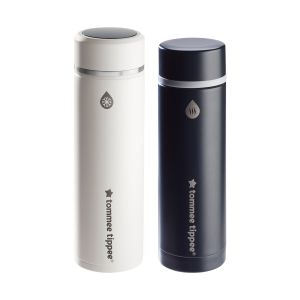
This is a demo store. No orders will be fulfilled.
Subscription orders can be cancelled at anytime. Free delivery on all subsequent subscription orders. Find out more about subscriptions.
They’re easy and fuss free
Your products are automatically sent to you
You save up to 10% when you sign up for a subscription
You can cancel at any time
Nappies, nappies, nappies! Parents go through so many, but how much do you know about all the different kinds? If you���ve recently become a parent, you���ve probably been shocked at the sheer number of nappy varieties on the market. Between disposable, biodegradable and reusable nappies, it can be difficult to know which kind to choose.
Recently - and by recently, we mean in the last 50 years - we���ve become a nation hooked on disposability. And while disposable nappies certainly aren���t the best for the environment, they sure do have their benefits!
Keep reading to find out about the different kinds of disposable and reusable nappies, and discover which might suit you best.
Before we delve deep into the pros and cons of each, here are the four main kinds of nappies available:
For many parents, disposable nappies prove a godsend. Though they might not be the most eco-friendly nappy choice, they���re certainly the most convenient.
Disposable nappies give you the freedom of changing your baby on the go without carrying a smelly used one around with you after! This makes them particularly useful for families who like to travel or go on frequent day trips with their little one.
Disposable nappies also contain special polymers that make them super absorbent, making them a great choice for babies who make a lot of mess!
But, like anything easily discardable, they do have their ecological downsides. In fact, it���s been estimated that disposable nappies can take up to 500 years to break down. Yikes!
If you���re conscious about your carbon footprint but are reluctant to give up the convenience of disposables, opt for biodegradable or ���half-and-half��� nappies.
These alternatives will allow you to reduce your waste while still enjoying the time-saving advantages of disposable nappies. Talk about the best of both worlds!
Reusable nappies are undeniably the most planet-friendly option out there. Cloth nappies help you reduce your household waste AND save you some money while you���re at it. This is a particularly attractive benefit if you���re planning on having more than one child.
It���s estimated that using cloth nappies will save you about ��270 per child (as long as you don���t tumble dry them after washing!). They���re also kinder to your baby���s bottom thanks to their chemical-free makeup - something your little one might appreciate if they���re prone to nappy rash.
That being said, washing reusable nappies can become a mammoth task if you have more than one baby on your hands. Babies can need changing up to 12 times a day - we���ll let you do the rest of the math on that one!
Cloth nappies can also take a while to dry, which can end up being a real pain if you have places to be and no backup reserves!
Some reusable nappies also require you to stock up on extras like wraps, liners and clips, so it���s important to choose the kind that���s right for you.
If you consider yourself an eco-warrior, then you���ve probably decided that cloth nappies are the best option for you.
Here are the different kinds of cloth nappies available to buy in the UK:
All-in-ones are super convenient and easy to use as they���re designed just like disposables.
They feature an adjustable velcro fastener that allows you to put them on easily, and in a way that fits your baby snugly.
The very best thing about all-in-ones? They contain an absorbent liner that���s sewed into the nappy, meaning there���s no need for extra inserts (woohoo!).
All-in-ones tend to cost a little more than other kinds of reusable nappies, but their user-friendliness is worth every penny.
Also known as ���stuffables���, these nappies have a pocket opening through which you can conveniently stuff absorbent inserts.
Pocket nappies allow you to switch up the absorbance of inserts dependent on your baby���s needs. They���re particularly useful for travelling and long journeys. You can add an extra-absorbent ���booster��� to tide you over until you reach your destination!
The versatility of pocket nappies makes them ideal for day to night wear, or for prepping your little one for childcare.
Pre-fold nappies are the most economical option if you���re opting for reusables. They���re made up of a rectangular cloth, a fastener and a waterproof cover.
The cloth is usually made out of cotton, making it ultra-soft and a great option for sensitive skin.
You���re also given greater freedom of choice when it comes to colour and pattern, meaning you can switch things up to match your baby���s outfit!